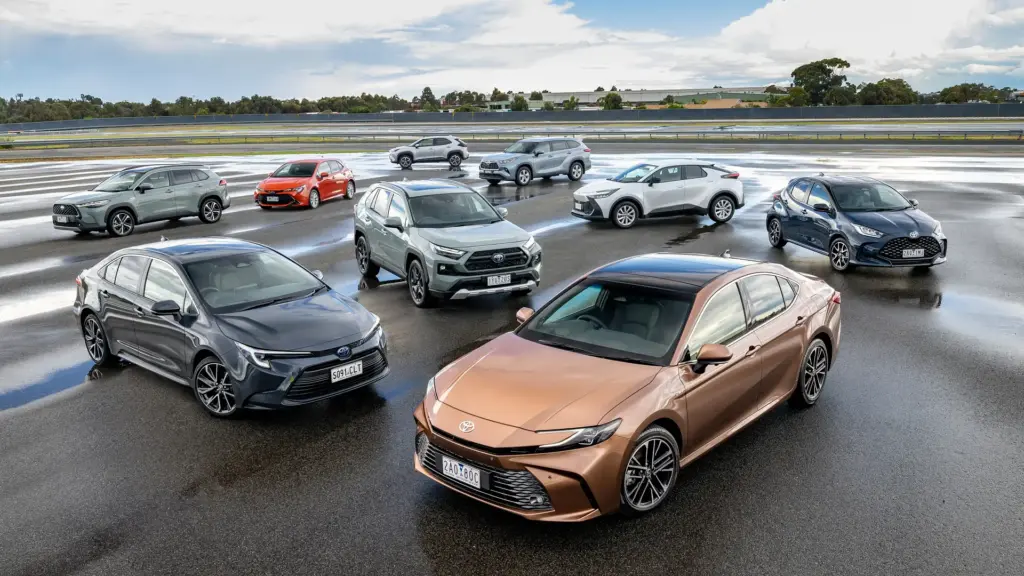
Toyota, a leader in the automotive industry, is reshaping the perception of hybrid vehicles. Traditionally seen as a solution for fuel efficiency, hybrids are now being positioned by Toyota as versatile vehicles that offer much more than just savings at the pump. This strategic shift was highlighted during a recent press event held in Tokyo, where Toyota executives unveiled their latest hybrid models, emphasizing performance, technology, and sustainability.
The announcement comes as the automotive world is undergoing a significant transformation, with manufacturers racing to meet stringent environmental regulations while also catering to evolving consumer preferences. Toyota’s move to broaden the appeal of hybrids is a response to these challenges, aiming to capture a larger share of the market by appealing to a diverse range of drivers.
Expanding the Hybrid Horizon
Historically, hybrid vehicles have been marketed primarily for their ability to reduce fuel consumption and emissions. However, Toyota is now highlighting other attributes such as enhanced driving dynamics, advanced technology features, and reduced environmental impact. According to Toyota’s Chief Engineer, Hiroshi Koba, the new hybrid models are designed to offer a driving experience that rivals traditional gasoline-powered vehicles.
“Our goal is to make hybrids appealing to everyone, not just those looking to save on fuel,” said Koba. “We want to show that hybrids can be exciting to drive, technologically advanced, and environmentally friendly.”
Technological Innovations
Toyota’s latest hybrids are equipped with cutting-edge technology that enhances both performance and driver experience. Features such as regenerative braking, adaptive cruise control, and advanced infotainment systems are now standard in many of Toyota’s hybrid models. These innovations not only improve efficiency but also offer a more engaging and convenient driving experience.
“By 2025, we aim to have electrified versions of all our models,” stated Toyota’s CEO, Akio Toyoda. “Hybrids are a crucial part of this strategy, bridging the gap between traditional engines and full electric vehicles.”
Market Trends and Consumer Preferences
This development follows a growing trend among consumers who are increasingly interested in sustainable and efficient transportation options. According to a recent survey by the International Energy Agency, there has been a 30% increase in hybrid vehicle sales globally over the past year. This surge is attributed to rising fuel prices and greater environmental awareness among consumers.
Meanwhile, other automakers are also expanding their hybrid offerings. Brands such as Ford, Honda, and Hyundai have introduced new hybrid models, each with unique features aimed at attracting a broad spectrum of buyers. The competition is fierce, but Toyota’s established reputation and early adoption of hybrid technology give it a competitive edge.
Expert Opinions
Automotive experts believe that Toyota’s strategy to redefine hybrids could set a new standard in the industry. John Smith, an analyst at Auto Trends Research, commented, “Toyota’s approach to hybrids is innovative. By focusing on performance and technology, they are appealing to a wider audience. This could potentially reshape consumer expectations and influence other manufacturers.”
“Hybrids are no longer just about saving fuel. They are about offering a complete package that meets the needs of modern drivers,” said Smith.
Looking Ahead
The move represents a significant shift in how hybrids are perceived and marketed. As Toyota continues to innovate and expand its hybrid lineup, the company is poised to maintain its leadership in the hybrid segment. The implications of this shift are far-reaching, potentially accelerating the adoption of hybrid technology worldwide.
According to sources within the industry, Toyota plans to introduce several new hybrid models over the next few years, each designed to cater to different market segments. This strategy not only reinforces Toyota’s commitment to sustainability but also ensures that the company remains at the forefront of automotive innovation.
As the automotive landscape continues to evolve, Toyota’s reimagining of hybrids could very well redefine the future of transportation. The next steps for the company involve further integrating hybrid technology across its entire range, ultimately leading to a more sustainable and efficient automotive industry.







